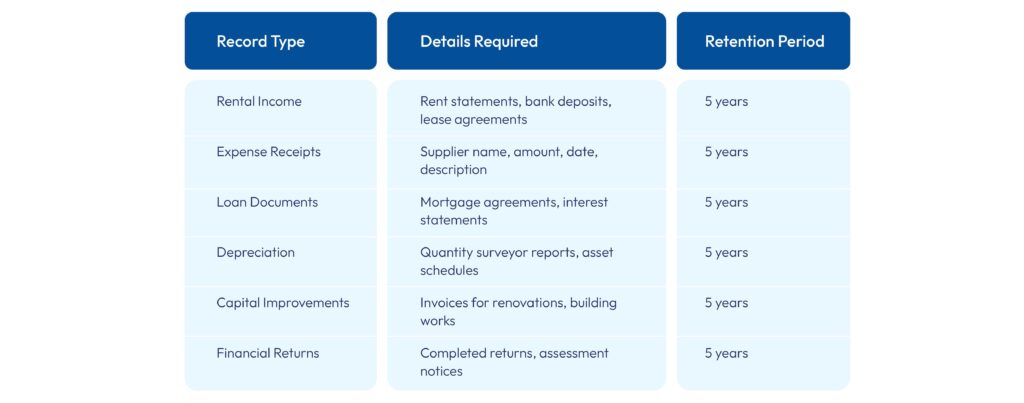Many Australian real estate agents and brokers find it difficult to keep their books in order while running their business each day. The Australian revenue authority keeps pointing out bookkeeping problems in real estate businesses. This often happens because of missed deductions and poor record keeping with trust accounts.
Property transactions are getting harder to handle and reporting requirements are getting tougher. This means good bookkeeping is now really important for real estate work. It helps you see your cash flow clearly and make better business choices. Using proper real estate bookkeeping software and professional accounting services makes everything easier and keeps trust accounts accurate.
This guide covers the best ways to do bookkeeping for real estate agents and property management companies in 2026. You’ll learn about managing trust accounts and tracking expenses. You’ll also find out how to pick the right accounting method and software. We’ll look at outsourcing options and the latest requirements that Australian property professionals need to follow.
Key takeaways
- Real estate bookkeeping requires specialised management of trust accounts, accurate rental income tracking and thorough record-keeping to protect your business.
- Choosing between cash and accrual accounting methods depends on the size and complexity of your property business; consistency is key.
- Proper classification of expenses as deductible or capitalised affects cash flow and tax planning.
- Modern cloud-based accounting software with automation saves time, reduces errors and improves financial visibility.
- Outsourcing bookkeeping tasks can bring specialist expertise, maintain accuracy and free up time for business growth.
- Keeping clear, backed-up records for at least five years is essential for meeting review and audit requirements.
- Regular reconciliation and annual audits of trust accounts help avoid financial discrepancies.
Understanding Real Estate Bookkeeping in Australia
Real estate bookkeeping means recording and managing money matters that are special to property businesses in Australia.
It’s different from normal bookkeeping or outsourced bookkeeping because it focuses on things like trust account management and rental income. It also covers security deposits and meeting strict government requirements.
Bookkeepers for real estate professionals need to track these transactions carefully to keep everything clear and proper. Trust accounts have specific criteria about how to handle client money safely. This makes real estate bookkeeping harder than regular bookkeeping which mostly deals with everyday business money.
Keeping accurate records helps with lodging statements on time and being ready for audits. This makes real estate bookkeeping really important for clear finances and running a successful property business.
Key responsibilities of Real Estate Bookkeepers
Real estate bookkeepers do an important job keeping money records accurate and making sure property transactions are done properly. Their main tasks include:
- Managing client Trust Accounts: Looking after trust accounts and security deposits and rental income to make sure money is handled the right way.
- Tracking money transactions: Recording commissions and deductions and vendor payments to keep clear records for agents and brokers.
- Ensuring proper reporting: Preparing statements and meeting reporting needs for real estate agents and property managers.
Good bookkeeping for real estate agents and brokers and property managers makes sure cash flow tracking is accurate. It also helps with meeting requirements and making better business choices.
Real Estate vs Regular Bookkeeping: Key differences
Real estate bookkeeping differs significantly from general business bookkeeping due to its specialised transaction management requirements.
Below is a detailed comparison outlining the key distinctions between the two:
| Aspect | Real Estate Bookkeeping | Regular Bookkeeping |
|---|---|---|
| Regulatory requirements | Governed by strict state legislation on trust accounts and client funds. | Follows general accounting and business rules. |
| Trust account management | Manages trust accounts for client funds like bonds and deposits. | No trust accounts; all funds are business-owned. |
| Income tracking | Tracks income by property or client. | Tracks income by product or service. |
| Expense allocation | Allocates expenses to individual properties or clients. | Groups expenses under general categories. |
| Record keeping | Maintains separate trust and operating ledgers. | Uses a single general ledger. |
| Audit & reconciliation | Requires external audits and strict reconciliations. | Regular internal reconciliations only. |
| Reporting | Generates property- and client-specific reports. | Produces standard business financial reports. |
| Risk & liability | Errors can cause action or license loss. | Mistakes lead to financial discrepancies only |
Essential financial records for Real Estate Businesses
Keeping good records is really important for property owners and managers. It protects them during reviews and audits and makes sure everything is done properly. Good paperwork supports deductions and backs up claims and reduces the risk of penalties.

Key records to maintain
Records should include digital or paper copies of:
- Income and rental records: Rent statements and bank statements showing rental payments and tenant leases.
- Security deposits and bonds: Records of bond money kept.
- Expenses: Invoices and receipts clearly showing supplier names and amounts and dates and descriptions of goods or services.
- Loans and mortgages: Loan documents and interest statements.
- Depreciation and big improvements: Quantity surveyor reports and asset schedules and renovation invoices.
- Returns: Completed returns and assessment notices.
- Supporting paperwork: Photos of property conditions before and after tenancies and mileage logs for travel claims (where needed) and backup copies of all digital records.
Without proper proof authorities may reject deductions. This leads to higher obligations and penalties.
Documents Required
| Record Type | Details Required | Retention Period |
|---|---|---|
| Rental Income | Rent statements, bank deposits, lease agreements | 5 years |
| Expense Receipts | Supplier name, amount, date, description | 5 years |
| Loan Documents | Mortgage agreements, interest statements | 5 years |
| Depreciation | Quantity surveyor reports, asset schedules | 5 years |
| Capital Improvements | Invoices for renovations, building works | 5 years |
| Financial Returns | Completed returns, assessment notices | 5 years |
Records must be in English or easily translatable and can be stored digitally or on paper. Backup copies are essential to prevent data loss and ensure continuity.
How to choose between Cash and Accrual Accounting Method?
Selecting the right accounting approach is really important for accurate and consistent bookkeeping for real estate companies. Property businesses usually choose between cash and accrual accounting based on their size and transaction volume and reporting needs.
Cash accounting records income and expenses only when money is actually received or paid, rather than when the transactions occur or invoices are issued. This makes it ideal for small landlords managing a few properties. It’s simple and provides a clear view of cash flow and works well with individual reporting.
In contrast, accrual accounting recognises income when it’s earned and expenses when incurred no matter when payment happens. This method gives a more accurate picture. This makes it the preferred choice for larger property management companies that handle multiple transactions and deferred payments
The chosen method must be applied consistently throughout the financial year for reliable statements.
Deductible Expenses vs Capital Items
Understanding which expenses are immediately deductible vs. capitalised is really important for planning.
Immediately deductible expenses include advertising and property management fees and council rates and repairs and interest on loans.
Repairs must be for wear and tear not improvements. Replacing a broken tap is deductible but replacing an entire kitchen is capital works.
Expense Classification Chart
Capital works like structural improvements must be claimed at 2.5% per year over 40 years.
Borrowing cost such as loan establishment fees are claimed over five years or the loan term, whichever is shorter.
Property owners should obtain a depreciation schedule from a qualified quantity surveyor to maximise deductions.
Managing Trust Accounts, Bonds and Rental Income
Effective property management in Australia requires strict following of trust account requirements and proper handling of security deposits and bonds and awareness of rental income obligations.
Trust Accounts and Bond Management
Security deposits and bond money must be held in authorised trust accounts separate from business funds with proper naming conventions.
Property managers should reconcile accounts regularly with withdrawals authorised only by licensed individuals in charge. Annual audits by registered auditors are mandatory in most states.
Best Real Estate Bookkeeping Software and Automation
Choosing the right software streamlines bookkeeping, ensures compliance and improves efficiency for property professionals.
Top Real Estate Software
TaxTank is Australia’s only rental property accounting software tracking all income types and showing the true financial position in real-time.
It manages employment income, rental properties, shares and other investments in one system. Other specialist platforms include PropertyTree, Console, REX, Vault RE, Xero, MYOB, QuickBooks and PropertyMe, catering to different real estate requirements.
| Software | Best for | Key features | Starting price |
|---|---|---|---|
| TaxTank | Individual investors | Live bank feeds and bank summary, built in tools | $9/month |
| PropertyMe | Property managers/agencies | Trust accounting, rent collection, tenant portal | $160+charges/month |
| Xero | General accounting | Bank feeds, invoicing, 1000+ integrations | $35/month |
| MYOB | Australian compliance | Payroll, inventory, lodgement | $11/month (post offer period) |
| QuickBooks | Advanced reporting | Class tracking, project management | Varies |
Cloud-based solutions provide automatic updates, bank-level security, mobile access and real-time collaboration with accountants and bookkeepers.
Technology and Automation Benefits
Modern software reduces errors and saves time by automating expense categorisation, invoicing, bank feeds and financial reporting. Automated features connect directly to financial institutions, minimising manual entry and improving accuracy.
| Feature | Benefit | Time Saved |
|---|---|---|
| Automated Bank Feeds | Eliminates manual transaction entry | 5-8 hours/month |
| Recurring Invoices | Automates monthly rent charges | 2-3 hours/month |
| Expense Categorisation | Reduces classification errors | 3-4 hours/month |
| Automatic Calculations | Ensures accurate reporting | 2 hours/quarter |
| Real-Time Reconciliation | Identifies discrepancies immediately | 4-5 hours/month |
Cloud platforms also allow property managers to access financial data from anywhere, enhancing flexibility. Real-time payroll reporting ensures adherence with Australian requirements for all employers.
Discover more about real estate accounting services.
Outsourcing Real Estate Bookkeeping Services
Outsourcing real estate bookkeeping services can be a smart move for property professionals seeking accuracy, efficiency and compliance. As managing multiple properties and trust accounts becomes complex, outsourcing ensures financial records remain precise and up to date.
Experienced professionals offering bookkeeping for real estate company operations bring specialised industry knowledge helping maintain trust account accuracy, minimize errors and reduce the risk of costly penalties. They also free up valuable time, allowing property managers and landlords to focus on client relationships and portfolio growth instead of manual bookkeeping tasks.
Additionally, outsourced real estate accounting services play a crucial role during audits and security checks. They provide organised financial statements, ensure adherence to governing framework and maintain transparency across all transactions offering peace of mind and consistent reporting accuracy.
When to Outsource Real Estate Bookkeeping?
Outsourcing real estate bookkeeping can be a strategic choice when managing finances becomes time-consuming or complex. Here are key situations when outsourcing is beneficial:
- Time-consuming bookkeeping tasks: Outsourcing frees up property managers to focus on client service and portfolio growth.
- Complex trust account management: Professionals ensure accurate reconciliation and compliance.
- Expanding portfolios: As transactions increase, outsourced experts maintain accurate, up-to-date records and streamline reporting.
- Audit or compliance preparation: Outsourced services provide organised reports and ensure full regulatory compliance.
- Frequent errors or late reporting: Outsourcing reduces mistakes, prevents penalties and ensures timely submission of financial data.
- Need for specialised expertise: Professional bookkeepers understand real estate-specific accounting, improving accuracy and financial decision-making.
If your internal team is stretched or compliance demands are increasing, outsourcing real estate bookkeeping ensures efficiency, accuracy and long-term business stability.
Best Practices in Real Estate Bookkeeping
Effective bookkeeping for real estate agents and property management bookkeeping in 2026 requires strict adherence to trust account requirements, accurate income reporting and robust record retention. Use the following checklist to stay compliant and audit-ready:
- Maintain separate trust and operating accounts Keep client trust funds distinct from business operating funds to comply with trust accounting legislation.
- Reconcile accounts regularly Conduct monthly reconciliations of trust and operating accounts to detect discrepancies early and maintain clean financial records.
- Declare all rental income Include income from short-term rentals, subletting, platform reimbursements and commissions. Proper reporting prevents audit triggers and penalties.
- Use digital tools and automated bank feeds Leverage cloud-based bookkeeping software to automate transactions, improve accuracy and simplify reconciliations.
- Retain records for at least five years Store invoices, receipts, bank statements, loan documents, depreciation schedules and property sale records digitally or in paper form with secure backups. Extend retention if disputes are unresolved.
- Ensure expense and repair accuracy Avoid claiming expenses during vacancy periods; differentiate between deductible repairs and capital improvements.
- Obtain professional depreciation schedules Engage certified experts to maximise allowable deductions for investment properties.
- Monitor platform fees and commissions Record short-term rental platform fees as deductible expenses, cleaning fees as income and property management commissions as expenses. Separate gross rental income from fees for accurate reporting.
- Stay updated with legislative changes Be aware of requirements like clearance certificates in Queensland, foreign resident withholding and other updates.
- Engage specialist bookkeepers and trust accountants Partner with professionals familiar with real estate accounting requirements, trust accounting requirements and local legislation.
- Prepare for audits and data-matching programs Authorities monitor rental income through automated reporting. Maintain accurate, transparent records to reduce audit risk.
- Backup and secure digital records Protect against data loss, corruption, or unauthorised access with secure cloud systems.
Adopting these practices ensures real estate accounting adherence, accurate reporting and efficient property management bookkeeping in 2026.
Conclusion
Effective bookkeeping for real estate agents and property management bookkeeping is key to keeping control of your money and meeting requirements in 2026. With detailed trust accounting requirements and changing reporting needs, accuracy and consistency are essential.
By combining modern real estate bookkeeping software with expert real estate bookkeeping services, property professionals can simplify record-keeping, reduce errors and gain real-time visibility into their financial performance.
For personalised support, Outbooks Australia provides outsourced bookkeeping for real estate companies. This ensures you meet requirements and maintain transparency and efficiency across every transaction.
Feel free to contact via email info@outbooks.com.au or call us at 0451 320 102.
Frequently Asked Questions
Parul is a content specialist with expertise in accounting industry. Her writing covers a wide range of domains such as, Accounts Payable, Accounts Receivables, Bookkeeping and more. She writes well-researched content and has a strong understanding of accounting terms and industry-specific terminologies. As a subject matter expert, she simplifies complex concepts into clear, practical insights, helping businesses with accurate tips and solutions to make informed decisions.







